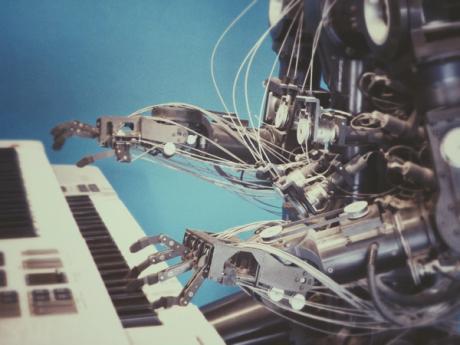
It is painfully clear that there is a need for a profound education reset in the UK. With a general election likely next year, it’s time for Keir Starmer’s Labor Party to start talking about the role of creativity in education. Socially, economically and technologically, our world has been transformed over the past five decades: the climate crisis; the rise of China; diversity, equality and inclusion; the massive expansion of higher education; the invention of the World Wide Web; automating; smart phones; artificial intelligence (AI). The list continues.
The skills required in jobs today are critical thinking, problem solving, communication skills, emotional intelligence, empathy and self-confidence. The case could not be clearer for the centrality of creativity in education. To use the expression of the great Labor deputy Nye Bevan, the pedagogy consisting in training students as “dry calculating machines” is over.
Ever since Prime Minister James Callaghan launched the “Great Education Debate” with his 1976 speech at Ruskin College, Oxford, Thomas Gradgrind – the superintendent of Coketown School Board in Charles Dickens’ novel Hard times-was the patron saint of educational reform in the UK: “Now what I want is facts. Teach these boys and girls nothing but facts. Only facts are wanted in life. Don’t plant anything else and uproot everything else. You can only train the minds of reasoning animals on facts: nothing else will ever be useful to them. This is the principle on which I raise my own children, and it is the principle on which I raise these children. Stick to the facts, sir!
It’s a bitter truth of satire that mocking stupidity doesn’t kill it. Despite Dickens’ blunt description of the emptiness of purely instrumental education, for nearly 50 years it turned everything upside down: “Gone is the fun, make way for curriculum reform.”
It is time for Labor to take a new approach. What requires change is first that we have reached the end of the benefits of the neoliberal changes introduced in education – the devolution of power to headteachers, the establishment of academies and the regime which means that we have the most tested children in the world.
A turning point in AI
But second, and far more importantly, we have reached a turning point in our intellectual history as a species with advances in artificial intelligence (AI). In recent months, many have become aware of OpenAI ChatGPTwhich its website describes as: “[a model] who interacts in a conversational way. The dialog format allows ChatGPT to answer follow-up questions, admit mistakes, challenge incorrect premises, and reject inappropriate requests.
And quickly, parents and students have found that it generates very good essays and answers to exam questions. The process of improving this AI created GPT-4, which according to OpenAI can beat 90% of humans on the US bar exam and 88% on the law school admissions test.
This leads to fundamental questions not only about how we educate children and young people, but also how we do it and for what purposes.
Since at least the 1950s, there have been warnings that “robots are coming”, and that fear never materialized. Yet, as a panelist at a seminar I hosted recently on the challenges of AI regulation, I said, “What if it was different now? Can you name a job that is done today by a human that could not be done by AI in the future? This question stuck with me in the weeks that followed, and I ran through a list of roles and occupations – noting tasks, and in fact whole rows of workers.
What is the distinctive human factor and where is it essential?
Live, of course. Who wants to see 22 AI rather than a classic football derby, or listen to a ChatGPT stand-up routine rather than being in a room with a comedian grabbing attention, demanding a response, and riding the energy of laughter ?
It is in real-time human interaction, unique and irreplaceable. These are qualities like empathy, appreciation of nuance, and emotional intelligence. As the novelist Iris Murdoch said in a response to CP Snow in her 1972 Blashfield speech to the American Academy of Arts and Letters: “There are not two cultures. There is only one culture and words are its basis; words are where we live as human beings and as moral and spiritual agents. Far from Gradgrind! Of course, those of us who have been captivated by Merce Cunningham’s dance company, inspired by the sculptures of Louise Bourgeois or mesmerized by a set by Loraine James know that physical, visual and musical art have a powerful impact and human too.
It is moral and spiritual action that should be nurtured by education – the time of Labor’s audacity. Nothing could be more forward looking or more progressive than putting creativity at the heart of education for this new century, this brave new world.
• John McTernan is a Labor strategist and former political secretary to Prime Minister Tony Blair (2005-07)
